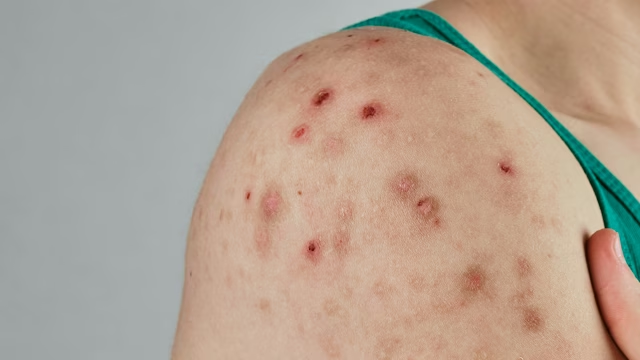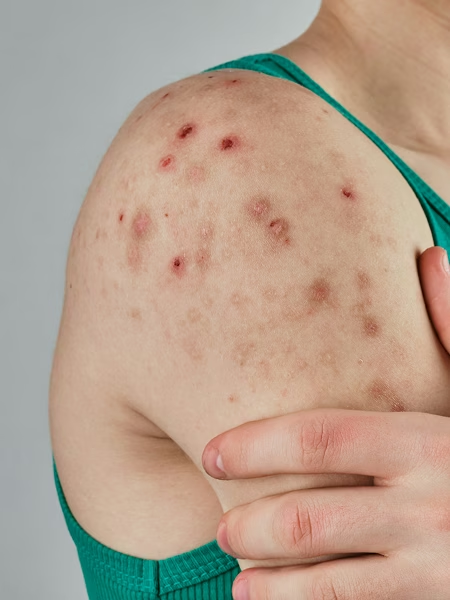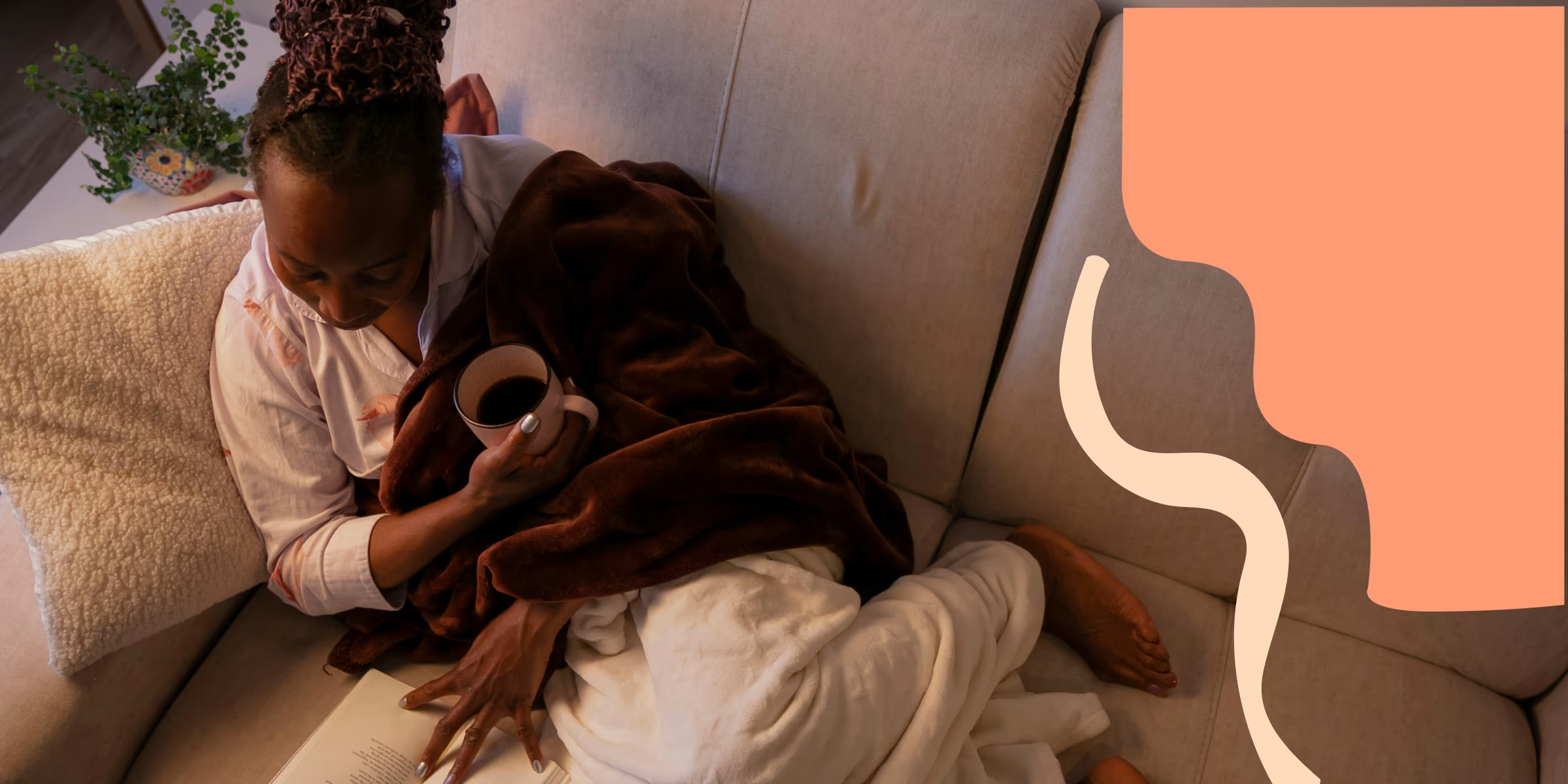Acne: It’s one of those things that most of us have dealt with at some point, and let’s be honest—it’s no fun. But did you know that birth control might just be the secret weapon in your skin care toolkit? Beyond preventing pregnancy, certain types of birth control can actually help keep those pesky pimples at bay as an FDA-approved treatment. But like anything in life, it’s not a one-size-fits-all solution.
Hey Jane offers over 100 different birth control options, including different formats and brands. From the pill to non-hormonal options and everything in between, our expert clinical team can recommend options, including ones that can help improve your skin and tamp down breakouts. Fill out our quick intake form to connect with one of our licensed clinicians via text, chat, phone, or video call and then have your prescription delivered directly to your doorstep or a local pharmacy for pickup (depending on the method).
Here’s what you need to know about the connection between birth control and acne.
What is acne?
Before we get into how birth control can help (or not), let’s talk about what acne actually is. Acne is a common skin condition that occurs when your hair follicles become clogged with oil and dead skin cells. Typically, outbreaks happen on your face but can also appear on your back, chest, and shoulders.
Several types of acne exist, including:
- Whiteheads: Closed clogged pores that look like small, white bumps.
- Blackheads: Open clogged pores that appear black due to oxidation.
- Pimples: Red, inflamed bumps filled with pus.
- Papules: Small, red, tender bumps.
- Nodules: Large, hard, painful lumps underneath the skin.
- Cystic lesions: Large, painful, pus-filled lumps beneath the skin.
Acne can happen due to many different factors, including:
- Hormonal changes (like puberty or pregnancy)
- Genetics
- Medications
- Diet
- Lifestyle habits
- Skin care products (especially those with fragrance or pore-clogging ingredients)
- Sunlight exposure
- Endocrine disorders (like PCOS or endometriosis)
- Excessive scrubbing of affected skin with soaps and detergents
- Stress
- Insulin resistance (occurs when the cells in your muscles, fat, and liver don’t respond well to the hormone insulin)
- Wearing items that trap sweat and create friction (like headbands, backpacks, and underwire bras)
Can birth control help improve acne?
Yes, birth control can help improve acne—especially when hormonal fluctuations are to blame. Hormonal birth control methods (also known as hormonal contraceptives) like combination oral contraceptive (COC) pills, patches, and vaginal rings work by regulating hormones that can cause acne.
Hormonal birth control methods can contain both estrogen and progestin or just progestin. According to research, estrogen can help reduce the production of sebum (the oily substance that clogs pores), while progestin can lower androgen levels. Androgens are the hormones responsible for increased oil production, so reducing them can lead to fewer breakouts.
Can birth control cause acne (or make it worse)?
Unfortunately, not all birth control methods are created equal when it comes to acne. Progestin-only methods like the mini pill, certain implants, and some IUDs may not have the same acne-fighting benefits. In fact, according to research, they can sometimes make acne worse by increasing androgen levels. The study’s participants who took Depo-Provera injections, implants placed under the skin, and IUDs reported worse acne compared to those who used the ring or combination birth control pills.
If you’re starting or stopping birth control, you might experience an initial breakout as your body adjusts to the new hormone levels—so don’t panic if you have a little acne flare-up. If it persists, you can always let your provider know and they can help you determine if another method may be right for you.


Best birth control methods for acne
When it comes to acne management, it’s all about finding the right fit for you. Every person is different, and sometimes, you may need to experiment with various methods to see what works best for your skin. Also, don’t feel like you have to stick with one birth control method if it’s causing acne or other symptoms that may be bothersome to you. Connecting with a trusted health care provider, such as Hey Jane, can help you identify which option is best for you.
*FDA-approved to treat acne, though the other methods see success as well
+This method will not improve hormonal acne as it is hormone free, but it is a good option if you want an IUD and don’t want to make your acne worse.
Here’s a deeper look into the best birth control for treating acne:
Combination birth control pills
Pills like Ortho Tri-Cyclen, Mircettte, and Yaz—which have low androgenic activity and cause less oil production—are often recommended for acne-prone folks. Look for pills with specific ingredients like drospirenone, norgestimate, or norethindrone in combination pills, as these can be particularly effective. The FDA has approved the following types of birth control for acne: Ortho Tri-Cyclen (norgestimate/ethinyl estradiol) Estrostep (norethindrone acetate/ethinyl estradiol) Yaz (drospirenone/ethinyl estradiol
The patch and the ring
Hormonal patches applied to the skin (like Xulane and Twirla) and vaginal rings (such as NuvaRing and Annovera) are alternative formats that work similarly to combination pills and can help with acne.
Non-hormonal methods
If you want to steer clear of hormonal birth control altogether, consider the copper IUD. It’s hormone-free and neutralizes acne—meaning it doesn’t cause acne, nor does it exacerbate it.
If you’re on the fence about copper IUDs, there are other non-hormonal options you can try, including barrier methods like condoms, cervical caps, diaphragms, and gels. While these can’t help fix acne, they won’t cause or exacerbate it either.
Emergency contraception and acne
Emergency contraception (EC), such as Plan B One-Step or Ella (which Hey Jane provides), prevents pregnancy after having unprotected sex. Because hese morning-after pills contain a higher dose of hormones than regular birth control pills, you might experience unwanted acne flare-ups (especially if you tend to get acne near your period, since EC delays ovulation). The risk, however, is low, since EC is a one-time dose as opposed to a daily medication.
Birth control is an incredibly helpful tool for preventing or reducing acne—whether or not you’re sexually active—and a health care provider can ensure that you find the best option for your skin and overall health. Remember, clear skin is just one benefit of birth control—it's also about finding the right method that supports your unique needs and lifestyle.


Want to take action?
Join the Un-Whisper Network














.avif)


